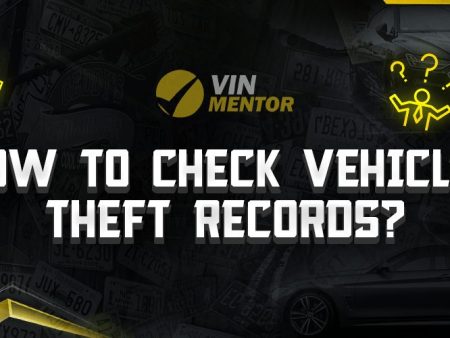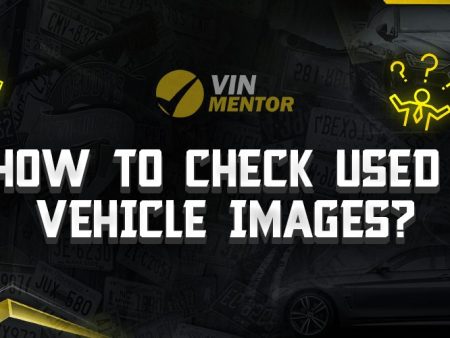

Are you trying to find the owner of a vehicle using its VIN? The answer may not be as straightforward as you think. While the VIN can provide a lot of information about a vehicle, such as its make and model, it may not necessarily reveal the current owner’s name. However, don’t be disheartened just yet. In this article, we will explore everything you need to know about VIN and finding vehicle ownership information.
Key Takeaways
- The VIN can provide a lot of information about a vehicle, such as its make and model.
- While the VIN can be useful in certain situations, it may not always provide the current owner’s name.
- There are various methods you can use to find vehicle ownership information, including using public records and contacting the DMV.
- It is important to follow proper procedures and regulations when searching for vehicle ownership information.
Is it Possible to Obtain the Name of the Owner Using the VIN?
The Vehicle Identification Number (VIN) is a unique code assigned to every vehicle that is manufactured. This code is made up of a series of letters and numbers that provide information about the vehicle’s make, model, year, and country of origin. The VIN is a valuable tool for car buyers and sellers alike, as it can be used to verify a vehicle’s history, including any accidents or repairs it may have undergone.
However, while the VIN can provide a lot of useful information, it may not necessarily reveal the current owner’s name. This is because the VIN is primarily used for tracking and identifying vehicles, rather than tracking their owners.
So, how can you find the owner of a vehicle using its VIN? While it may not be possible to get the owner’s name directly from the VIN, there are a few methods you can use to obtain this information.
Contact the DMV
One of the most reliable ways to obtain vehicle ownership information is by contacting the Department of Motor Vehicles (DMV) in your state. Each state has its own DMV, and the procedures for obtaining ownership information may vary. However, in most cases, you will need to provide the VIN and your reason for requesting the information. In some cases, you may also need to provide additional information, such as your name and address, as well as proof of your identity.
It is important to note that the DMV may not always provide ownership information to the general public. In some cases, you may need to be a registered owner or have a legal interest in the vehicle to obtain this information. Additionally, there may be fees associated with obtaining this information.
Use Public Records
Another way to obtain vehicle ownership information is by using public records. Many states have public databases that allow you to search for ownership information using the VIN. These databases may be available online, or you may need to visit your local courthouse or government office to access them.
It is important to note that not all states make this information publicly available. Additionally, even in states where ownership information is publicly available, you may need to provide a valid reason for requesting this information. Examples of valid reasons may include obtaining information for insurance or legal purposes.
Hire a Private Investigator
If you are unable to obtain ownership information using the methods above, you may want to consider hiring a private investigator. Private investigators have access to a wide range of databases and resources that may not be available to the general public. However, it is important to note that hiring a private investigator can be expensive, and there is no guarantee that they will be able to find the information you are looking for.
Contact the Previous Owner
If you are trying to find the previous owner of a vehicle, you may be able to obtain this information by contacting the current owner. The current owner may be able to provide you with the contact information of the previous owner, or they may be willing to share some information about the vehicle’s history.
It is important to note that not all owners may be willing to share this information, and it is also possible that the previous owner may not be the same as the registered owner. Additionally, if the previous owner sold the vehicle to a dealership or auction, it may be difficult to track down their contact information.
Conclusion
While the VIN can provide a lot of useful information about a vehicle, including its make and model, it may not always reveal the current owner’s name. Yet, there are various methods you can use to find vehicle ownership information, including contacting the DMV, using public records, hiring a private investigator, and contacting the previous owner. It is important to follow proper procedures and regulations when searching for vehicle ownership information and to have a valid reason for requesting this information. However, if you want to find out more information about the car, you can use our list of recommended top VIN Check Websites.
FAQ
Can I use the VIN to find out if a car has been in an accident?
Yes, the VIN can provide information about a vehicle’s history, including any accidents or repairs it may have undergone.
Is it legal to search for vehicle ownership information?
It depends on the reason for the search and the regulations in your state. In most cases, you will need to have a valid reason for requesting ownership information, such as for insurance or legal purposes.
How much does it cost to obtain ownership information from the DMV?
The fees associated with obtaining ownership information may vary depending on your state and the type of information you are requesting.
Can I find ownership information for a vehicle from another state?
Yes, you can request ownership information from the DMV in any state where the vehicle is registered.
What if the previous owner does not want to provide me with their contact information?
If the previous owner is not willing to share their contact information, or if they sold the vehicle to a dealership or auction, it may be difficult to obtain this information. In such cases, you may need to explore other methods for obtaining ownership information, such as using public records or hiring a private investigator.












